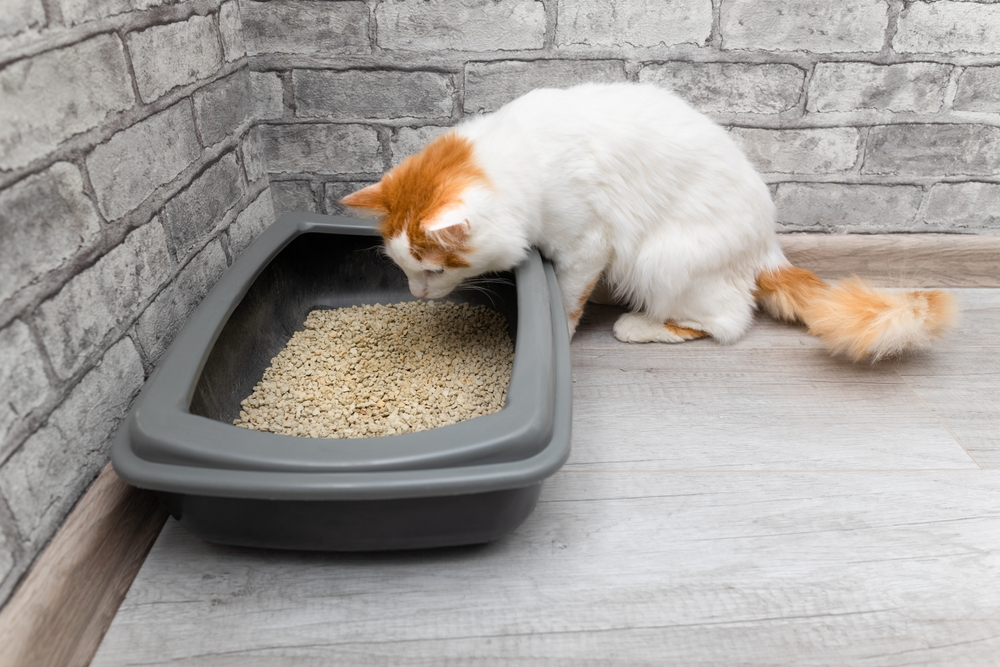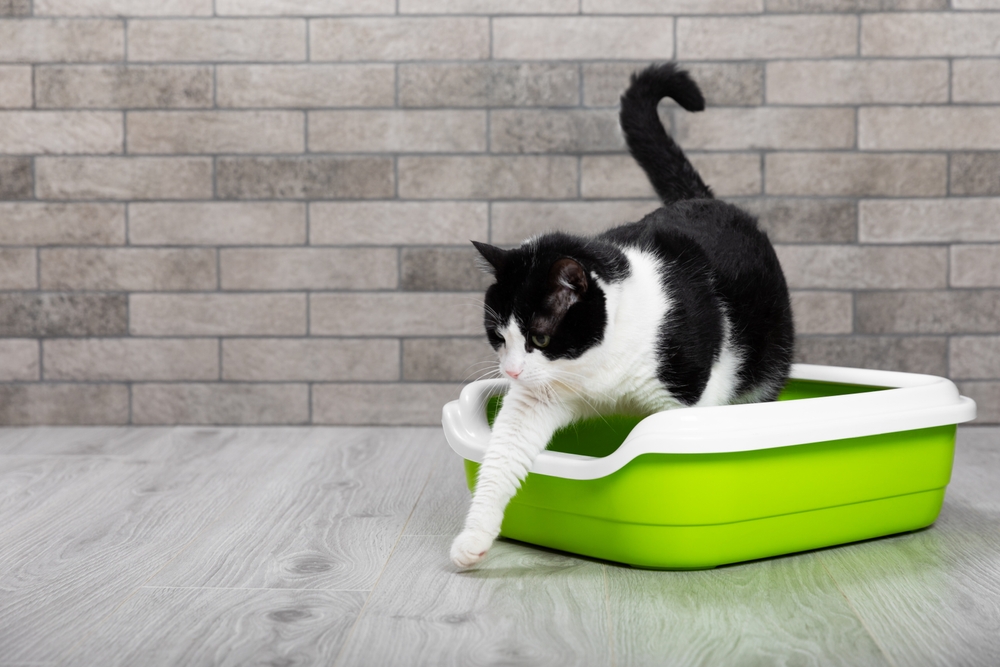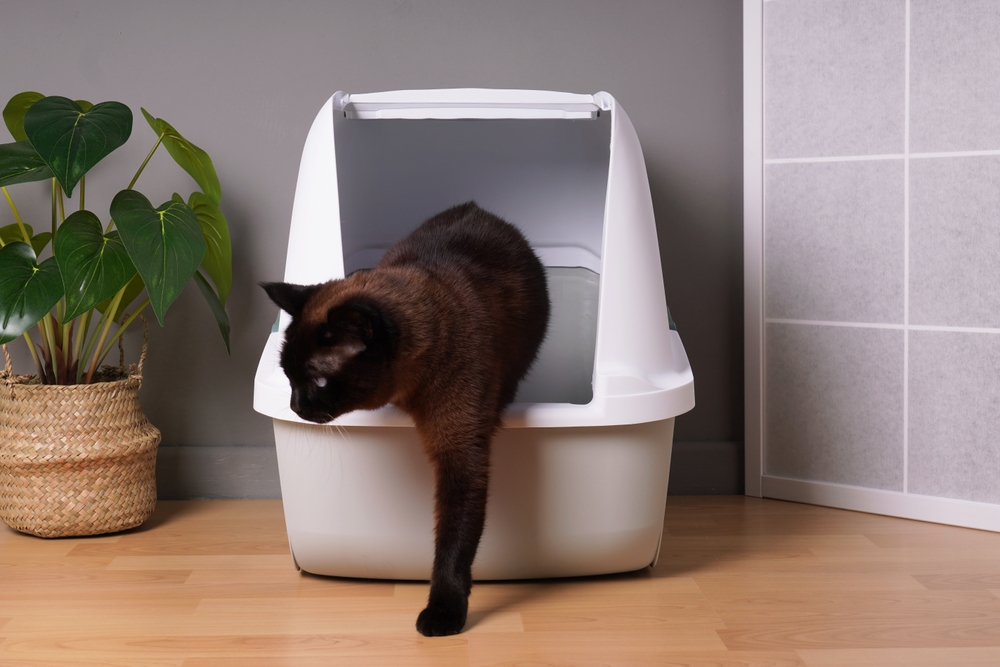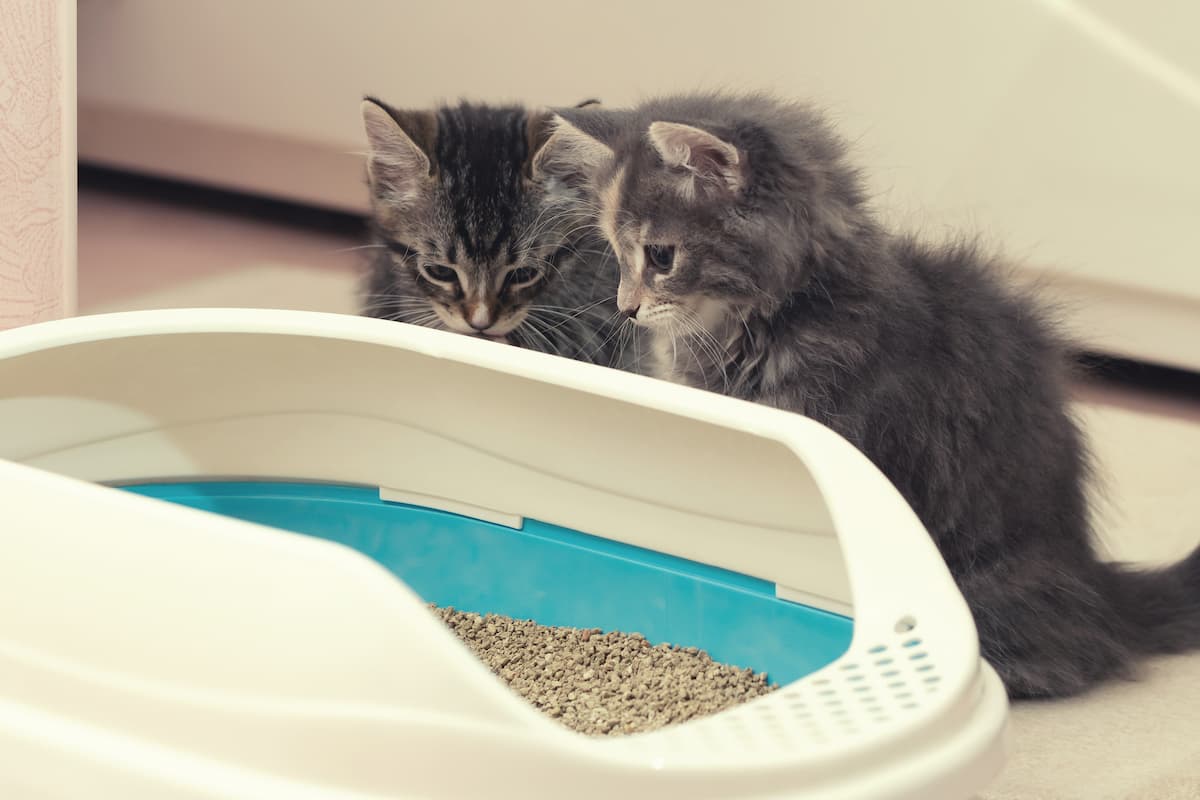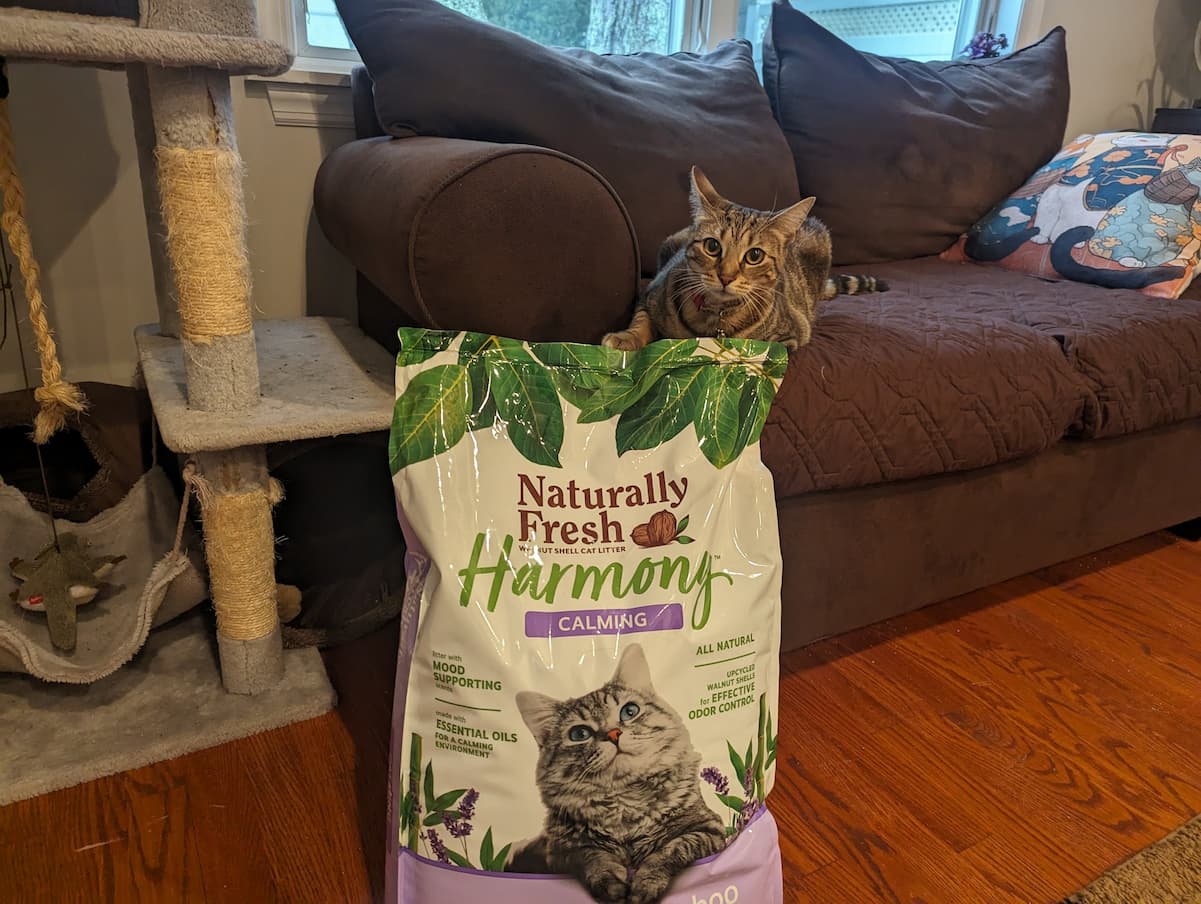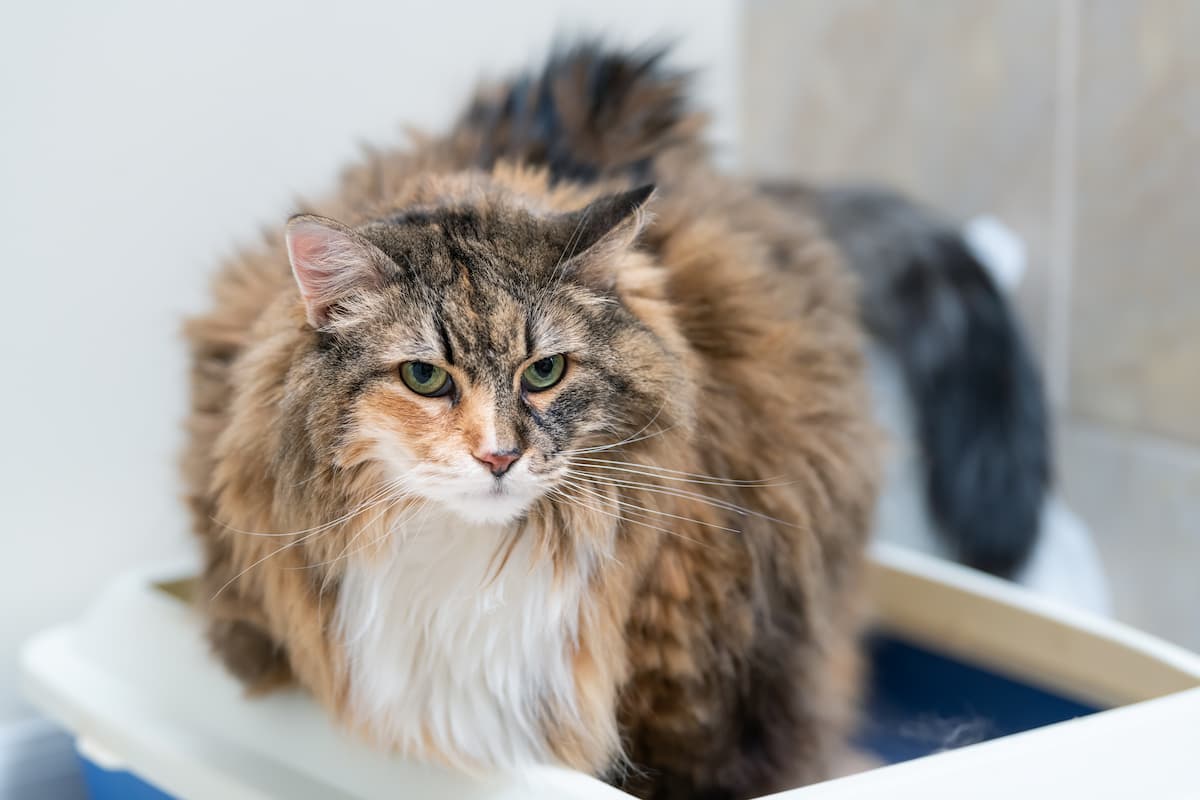7 Best Senior Cat Litter Boxes in 2025
Updated on February 28, 2024
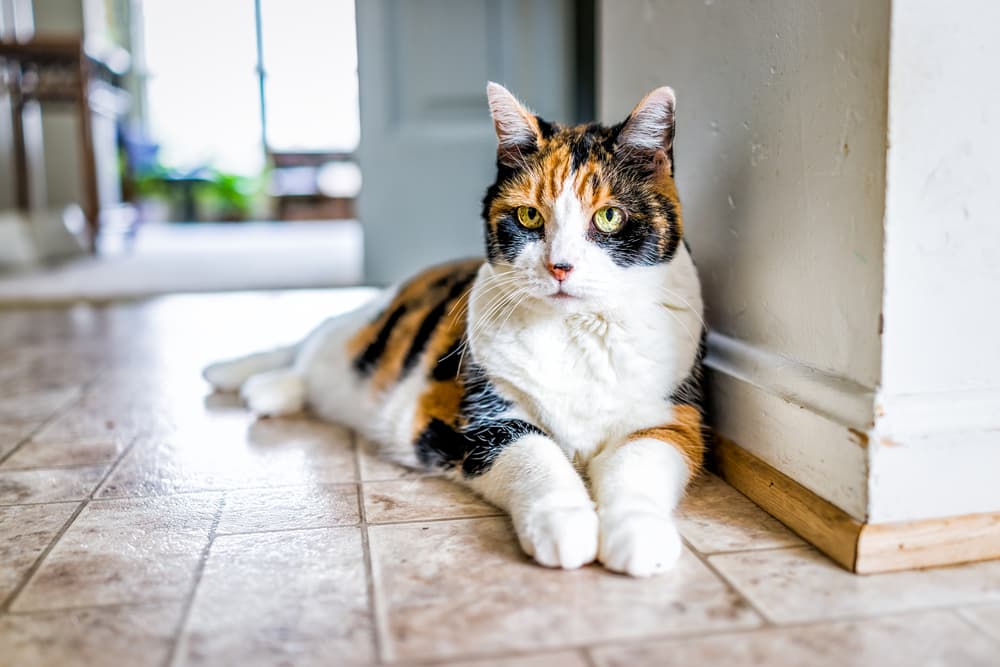
Thinking about purchasing senior cat litter boxes? If you have an older cat, you might have noticed their bathroom habits have changed – and not for the better – causing you to wonder, “why is my elderly cat suddenly pooping on the floor?”
This can be frustrating; finding cat waste on the floor, or worse, on your bed, is not only a cleanliness problem, but it could also indicate a health issue with your pet. As cats age, certain movements can be painful, and they can develop problems that affect their kidney and digestive systems. This can mean that a cat who previously used a litter box with no problem will start to behave differently.
After a visit to your vet to determine if the problem is a health issue, replacing your cat’s current litter box with a senior cat litter box can help end inappropriate bathroom habits.
Top Senior Cat Litter Boxes: Our Picks
All featured products are chosen at the discretion of the Vetstreet editorial team and do not reflect a direct endorsement by the author. However, Vetstreet may make a small affiliate commission if you click through and make a purchase.
- Best Overall Litter Box for Senior Cats: Arm & Hammer Rimmed Cat Litter Box with High Sides
- Best Easy Cleaning Litter Box for Senior Cats: Tuft + Paw Cove Litter Box
- Best Hooded Litter Box for Senior Cats: Catit Airsift Jumbo Hooded Cat Litter Pan
- Best Low Entry Litter Box for Senior Cats: Kitty Go Here Senior Cat Litter Box
- Best Automatic Litter Box for Senior Cats: ScoopFree by PetSafe Smart Self-Cleaning Cat Litter Box
- Best Litter Box with Ramp for Senior Cats: Petmate® Booda Clean Step Litter Box
- Best Litter Box Alternative for Senior Cats: Wee Wee Potty Pads
7 Best Senior Cat Litter Boxes of 2025
Best Overall Litter Box for Senior Cats
Our Pick: Arm & Hammer Rimmed Cat Litter Box with High Sides
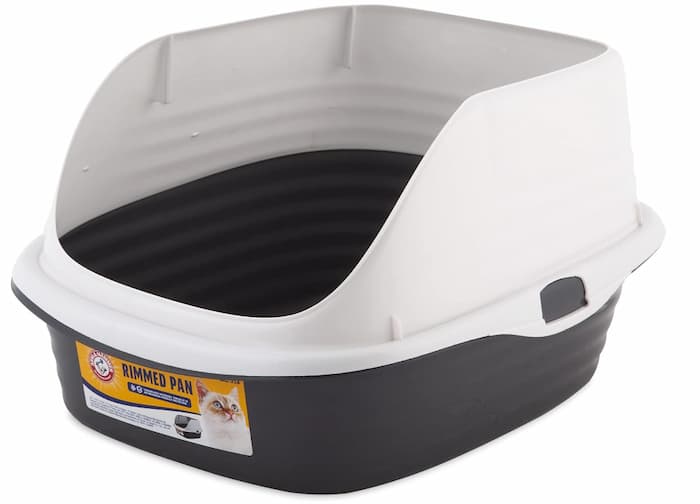
Our best overall litter box for senior cats truly combines the best of everything. The low entry point allows your pet to step in easily and gives them plenty of room to move around. This top entry litter box measures 18.7 in. x 15.5 in. x 10.6 inches. Unlike other senior cat litter boxes that have low sides all around, these ones are high, which can help contain litter scatter and keep your pet from going to the bathroom outside the sides. Plus, it contains built-in Microban to guard against any litter box odors.
Pros
- The combination of low entry and high sides makes it easy for cats to get in and out without making a mess
- High rim reduces scatter and spray
- Easy to clean with soap and water
- Rim holds litter liners in place
Cons
- Large cats may need a wider entrance
- Cats with extreme mobility issues may still find the entry point too high
Best Easy Cleaning Litter Box for Senior Cats
Our Pick: Tuft + Paw Cove Litter Box
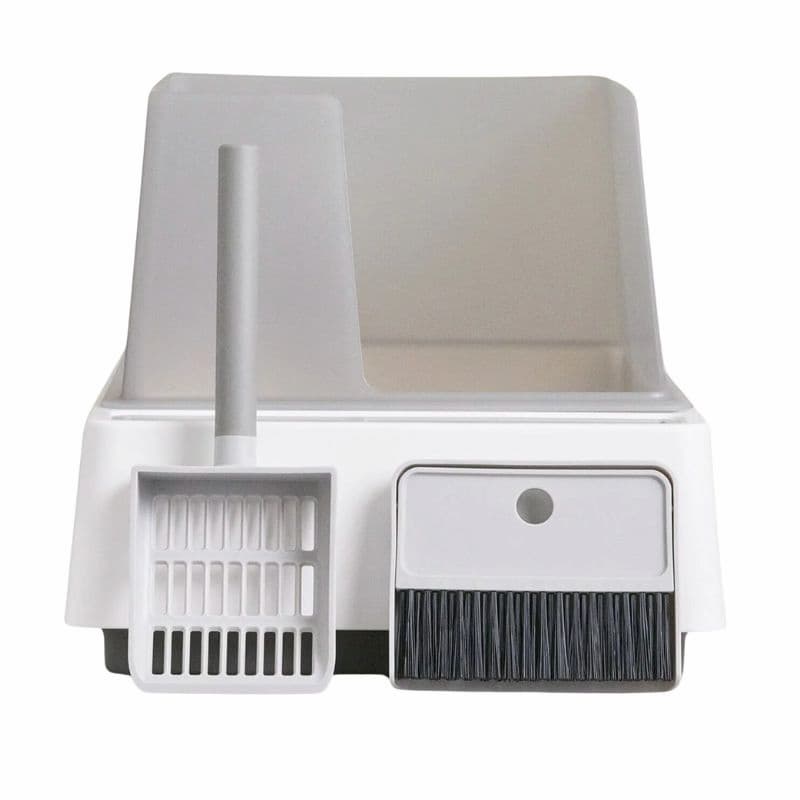
Some senior cats are known to pee more frequently than younger cats. So, having a litter box that’s easy to clean is important. The Tuft and Paw litter box was designed with ease in mind. There’s an integrated scoop, brush, and dustpan to make cleaning a breeze. The litter box also comes with a removable 8’’ shelter that slips on top, giving cats privacy and sufficient room to move around.
You can easily take the shelter off to clean it, but you can also scoop out litter from the box while leaving the shelter on, which is another plus for cleaning reasons. Another benefit of the added shelter is that it helps your senior cat keep their business inside the box rather than out. Senior cats can easily enter this litter box due to its wide entrance, and the thick, high-quality plastic is very easy to wipe clean. The best way to use this litter box is to also use Tuft and Paw litter, which easily clumps and creates very little dust — and works perfectly with the scoop.
Pros
- The litter box makes cleaning easy with an integrated scoop, brush, dustpan, and removable 8’’ shelter.
- The thick plastic of this litter box is easy to clean.
- The shelter helps keep poop and pee inside the litter box and gives your cat some privacy but also room to move around.
- Senior cats can easily enter this box due to its wide entrance.
- Modern design makes it visually appealing.
Cons
- The box and scoop seem to work best with the Tuft and Paw litter, making this litter box system a bigger financial commitment.
Best Covered Litter Box for Senior Cats
Our Pick: Catit Airsift Jumbo Hooded Cat Litter Pan

Some senior cats may prefer to use an uncovered litter box, but covering it can not only look nicer in your home, it can also help contain litter and smells. If your pet doesn’t mind using one, this jumbo hooded cat litter pan for senior cats is a good choice. Unlike some hooded boxes that are small and restrict your cat’s movement, it’s both wide and tall, so it provides privacy without causing extra pain to arthritic cats. It also has a very low entry point to allow cats to step in without lifting their paws too high.
Pros
- Large hood gives cats privacy without being claustrophobic
- Available with additional features (i.e., air purifier pad)
- Low entry is good for cats with painful joints
- Specially designed with a raised back to help prevent spills
- Top door filter to minimize and remove odors
Cons
- Some reviews indicate it could be sturdier
- Hooded design might not be the best option for larger senior cats
Best Low Entry Litter Box for Senior Cats
Our Pick: Kitty Go Here Senior Cat Litter Box
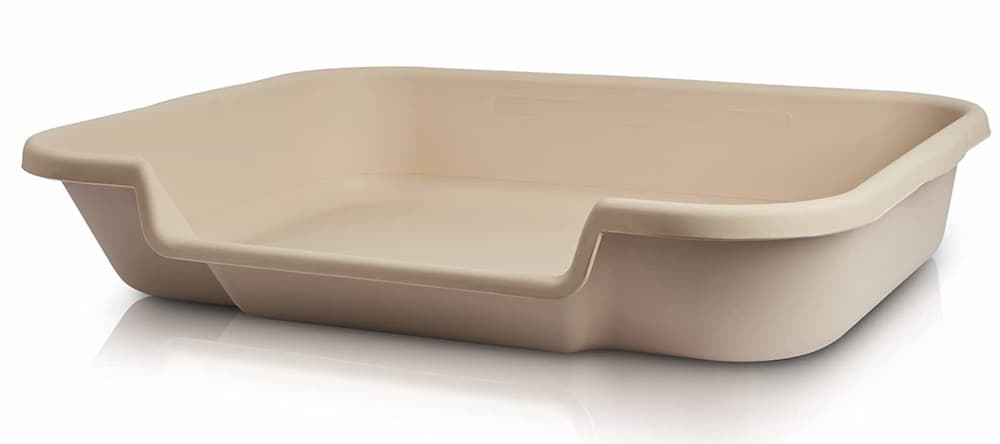
The low sides, open design, and wide entry point of this Kitty Go Here litter box mean your pet won’t have to step high or squeeze their body into an uncomfortable space. For cats with extreme joint issues, this low-entry litter box for senior cats may be one of the best options. It’s available in multiple sizes, with the larger size measuring 24” by 20” to provide plenty of room for even the biggest of cats to go to the bathroom without missing.
Pros
- Great for cats with joint issues who can’t step into high-sided litter boxes
- Extra-large size gives cats plenty of room to do their business
- Available in multiple sizes and colors
- Made of BPA-free material
Cons
- Sides may be too low for cats who tend to spill over the edge
Best Automatic Litter Box for Senior Cats
Our Pick: ScoopFree by PetSafe Smart Self-Cleaning Cat Litter Box
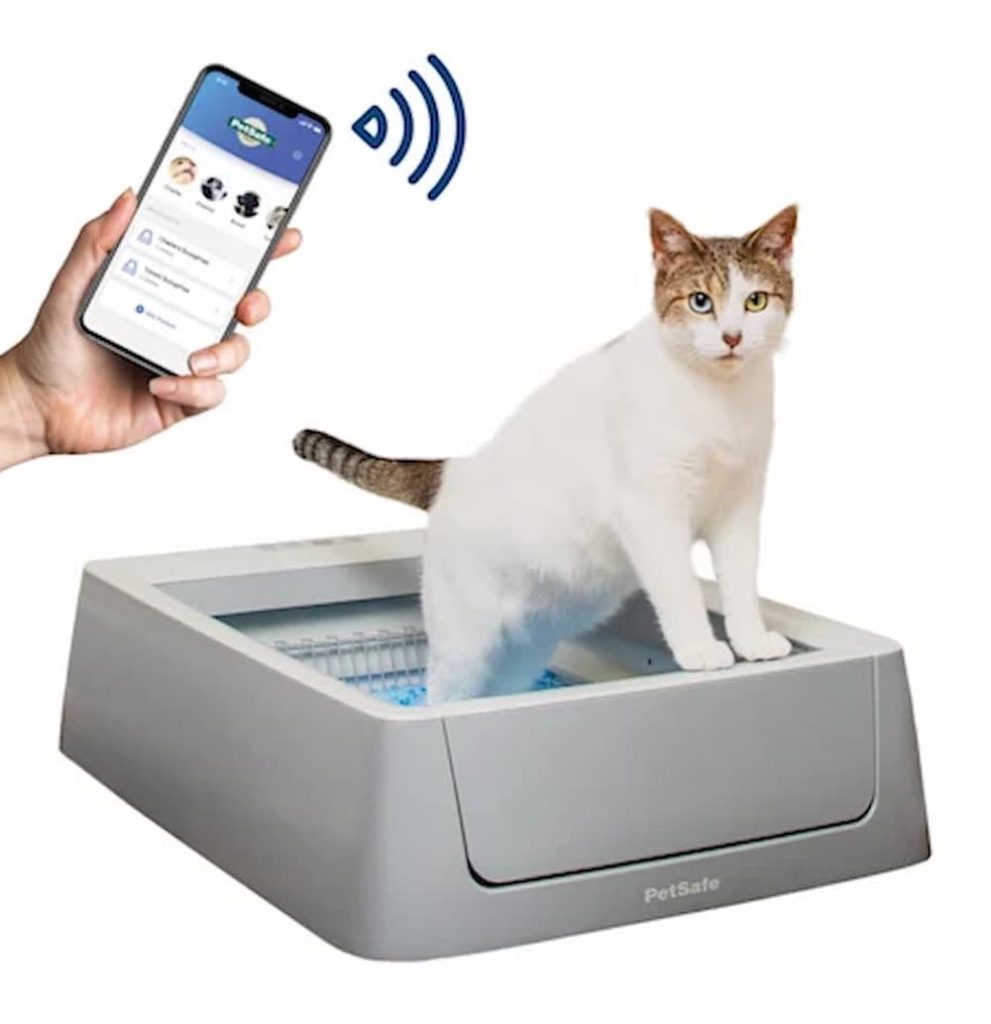
Automatic litter boxes keep litter clean for cats that might be picky about a dirty box. While most are large and have a high entry point, this one is just 6” high and has an open top so cats aren’t confined in a small, enclosed space. When your cat is finished, the rake removes any waste so they have a clean box each time. This automatic litter box for senior cats is even connected to an app, allowing you to monitor your pet’s bathroom habits and health, which can be key for catching any issues early. Tip: Some automatic litter boxes can be finicky and need to be used correctly in order to avoid any issues, so be sure to follow directions about the type of litter used and the maintenance schedule.
Pros
- Automatically cleans away waste 20 minutes after your cat uses the litter box
- Open top allows your cat to move freely
- Corresponding app lets you track your pet’s bathroom habits and potentially catch any health issues
- Lower sides for easier senior cat entry
Cons
- May be too small for some senior cats
- A ramp still may need to be added for cats who have trouble stepping into the litter box
- Very high price point
Best Litter Box with Ramp for Senior Cats
Our Pick: Petmate Booda Clean Step Litter Box
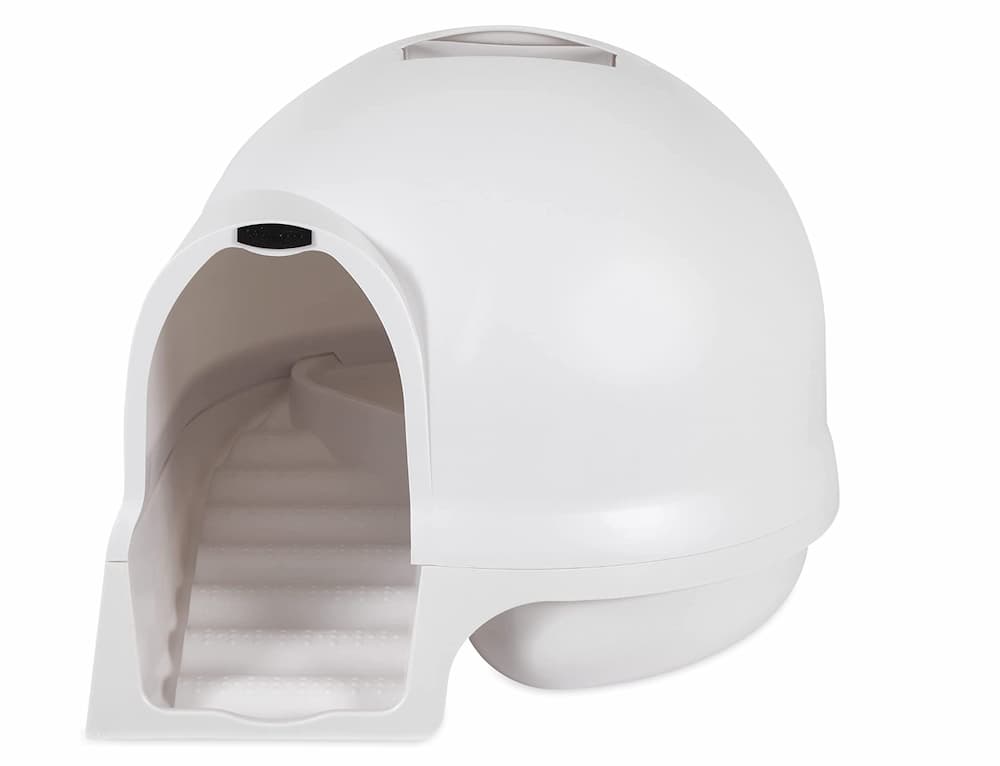
Sometimes a ramp can make it easier for senior cats to get in and out of the litter box, and in this model, the ramp leads into a domed, covered area for your pet to use. This litter box can be a really good option for smaller cats who don’t mind a hooded design. The cover not only gives your pet privacy, but also keeps smells contained and litter from scattering. It comes in multiple colors, includes a charcoal filter, and has compatible liners available.
Pros
- Ramp helps senior cats enter the litter box
- Cover helps keep smells and litter inside
- Available in multiple colors
Cons
- May be too small for large cats and those that don’t want to be confined
- Some customers don’t like that the top doesn’t fully attach
Best Litter Box Alternative for Senior Cats
Our Pick: Wee Wee Potty Pads
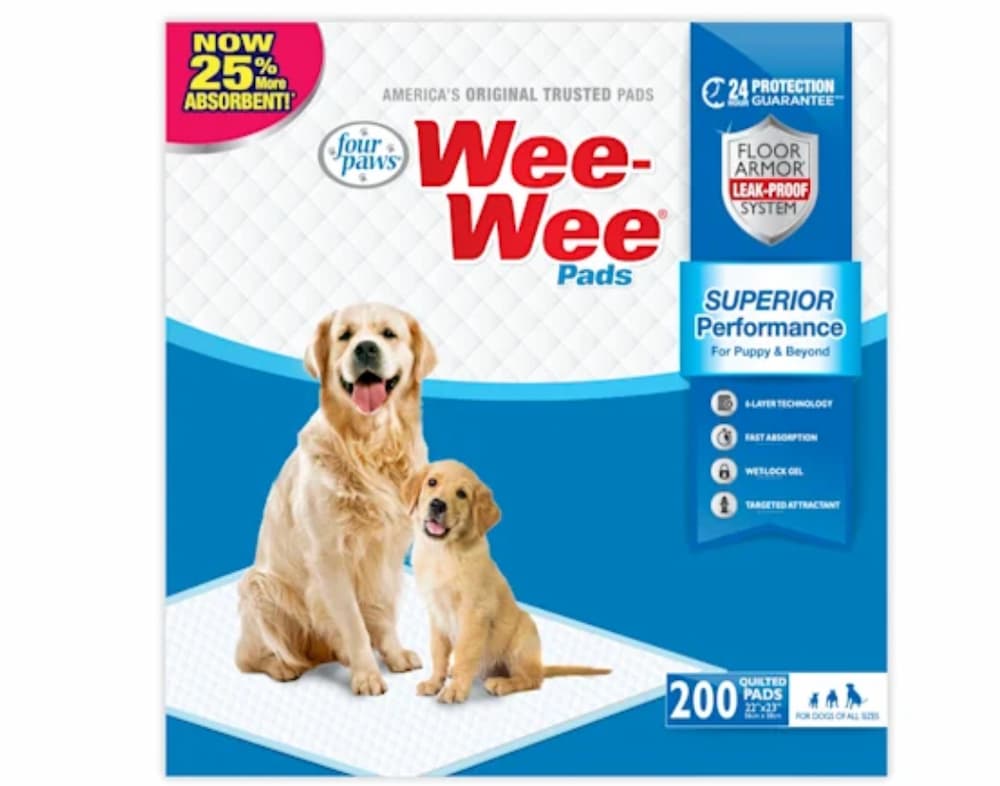
If your senior cat has chosen a favorite place to use the bathroom that is outside their litter box, pee pads may be a good idea. You can also teach your cat to use pee pads if you’ve found they have difficulty getting into and using a typical litter box. These pads in particular are a great choice because they have a large enough surface area for business to be done, multiple layers of protection to keep messes off your floor, and an attractant that can help entice your cat.
Pros
- No need for cats to step into a box
- 100% leak free with multiple layers of absorption
- Added attractant encourages pets to use the pads
- Can also be used around litter boxes to clean up extra messes
Cons
- Not all cats may take to using pee pads
- Can be more wasteful than litter
When to Consider a Senior Cat Litter Box
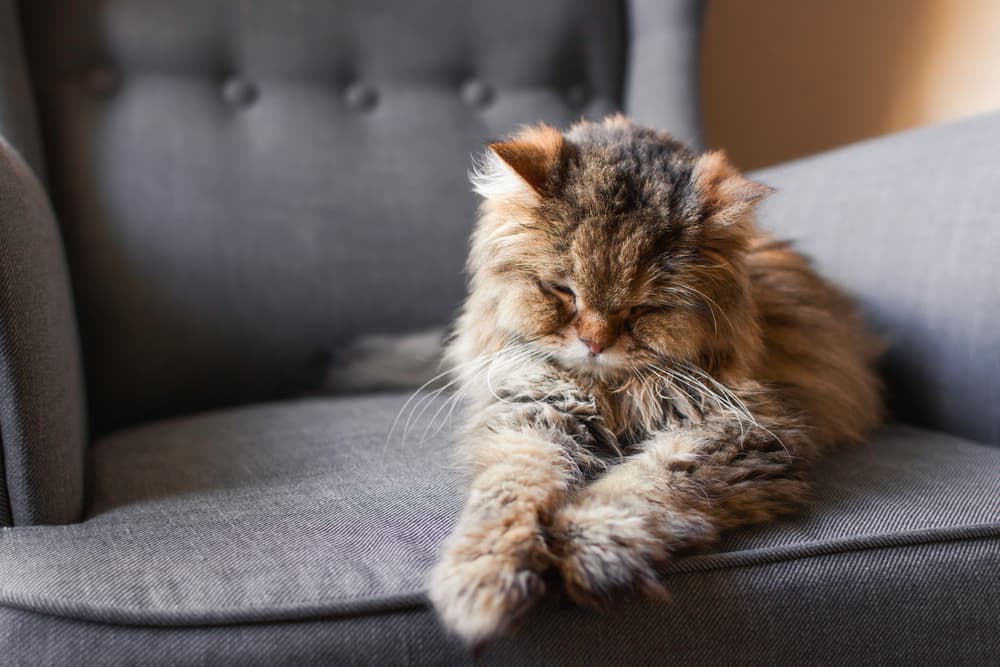
“Aging can definitely affect a cat’s ability to use its litter box,” explains Cincinnati based veterinarian Amanda Steffen. But it might be a good idea to save you and your cat a lot of frustration and switch their litter box even before you consider them “old.”
“Over 60 percent of cats over the age of 6 have arthritis in at least 1 joint,” says Dr. Steffen. This pain can affect their ability to both step into and maneuver within a litter box, especially if the sides are too high or the cover too small.
Outside of aging itself, Dr. Steffen mentions some other indications that it might be time to invest in a specialized litter box for senior cats. “Signs that your senior cat may need a new box include urinating or defecating outside of the litter box (usually right outside), partially going outside of the box (i.e. part of their body is in the box and part is out), very firm stools indicating they may be holding their defecation longer than they should, crying in front of the box, and sitting in front of the box but hesitating to go inside,” she explains.
Causes of Senior Cat Litter Box Problems
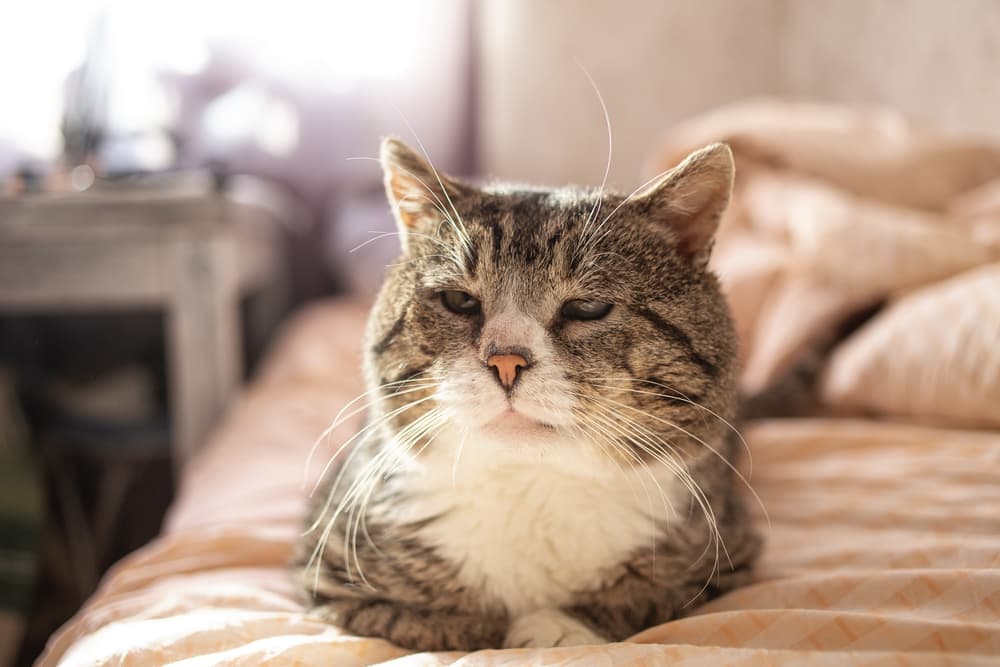
Why do your cat’s bathroom habits change as they age? For the most part, it comes down to changes in health.
As mentioned, arthritis impacts over half of cats by the time they’re 6 years old. This means that pain can keep them from moving as they did as a kitten. “Painful joints can make it difficult to squeeze into small boxes, circle and posture inside of a box, and climb into the box or up onto a surface that the box may be on,” says Dr. Steffen.
Health issues like kidney disease and diabetes can also cause changes. ”If you are noticing increases in urination, inappropriate urination, or defecation, it is always good to chat with your vet and see if your pet needs some bloodwork or other testing done,” says Dr. Steffen. This testing can also help uncover any other issues that might be causing problems.
As cats age, they can also begin losing their sight. This, combined with cognitive decline, can mean your cat has difficulty finding their litter box, especially if it’s been moved or if the room is dark.
It’s important to know that sudden changes in your cat’s bathroom behavior can be an indication of a health issue unrelated to aging. This is why it’s doubly important to take your cat in for a checkup when you notice them behaving differently, rather than just assuming the problem is age.
Types of Litter Boxes for Senior Cats
While younger cats may be able to use top-entry litter boxes or litter boxes small enough to fit within your space, special considerations need to be made as your pet ages in order to keep them content — and your home free of the smell of cat urine.
Litter boxes for senior cats are typically designed with their mobility issues in mind. This means lower entry points, larger box sizes, and other accessibility features that make it easier for senior cats to use the litter box.
How We Ranked the Top Litter Boxes for Senior Cats
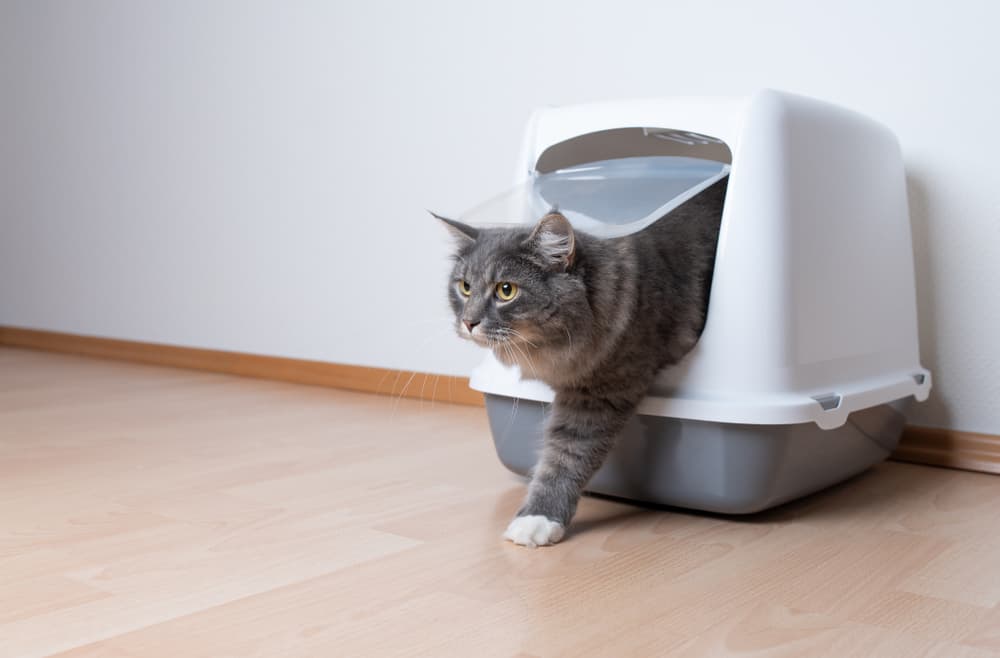
To select the best litter boxes for senior cats, we used the advice of veterinarians and the reviews of other pet parents, as well as the following criteria:
Size. Generally speaking, larger litter boxes are easier for senior cats to maneuver in, so we kept an eye on the size of each box on our list.
Design. Whether a lower/larger entry point for cats with limited mobility, higher sides for less litter scatter, or a cover for privacy, we noted any features that could enhance (or even detract from) your senior cat’s experience.
Ratings/Reviews. Knowing what worked and what didn’t for other people can be incredibly beneficial when it comes to litter boxes for senior cats, so we took note of what your fellow pet parents had to say in the review section.
Price. We tried to include senior cat litter boxes at a variety of price points in order to help you compare not only the benefits of each, but also the cost.
Author’s note: I was also able to use my personal experience of living with cats that are 15+ years when compiling this list of litter boxes for senior cats.
Senior Cat Litter Box Buying Guide
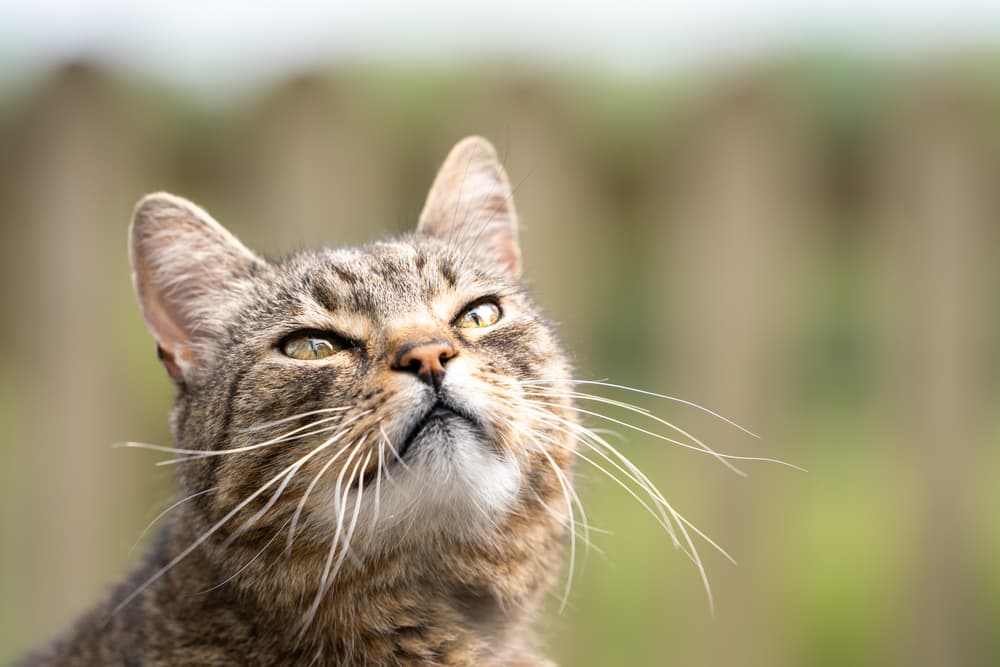
When choosing a litter box for your senior cat, there are several things you want to consider.
Your cat’s issues. Does your cat have trouble stepping into the litter box? Try a low entry. Is the litter box too small inside? Upgrade to a larger version, or choose a litter box without a hood. Is your senior cat peeing outside the litter box? Maybe pee pads will work better.
”Uncovered boxes are good for older cats to prevent these issues. You should look for a box with a larger base in surface area as well. This will also help with allowing them to move freely in the box and not have to bend their joints too much,” says Dr. Steffen.
A veterinarian visit can help you determine what might be the cause of these issues (like joint pain or kidney disease), which can help narrow down the litter box that’s best for your pet.
Your cat themself. Health and related issues aside, you know your cat best of all. For example, if your furry friend has never used an automatic or covered litter box, maybe their golden years are not the time to introduce one, as it could be a bit intimidating. Don’t forget to consider your kitty’s preferences as you shop around.
Your space. It’s also important to think about the needs in your home. Is the litter box in a place where it needs to be covered? Does your cat tend to scatter litter everywhere? In these cases, looking for a box with a cover or high sides might be a good idea – just be sure it’s large enough if your pet has mobility issues.
Senior Cat Litter Box FAQs
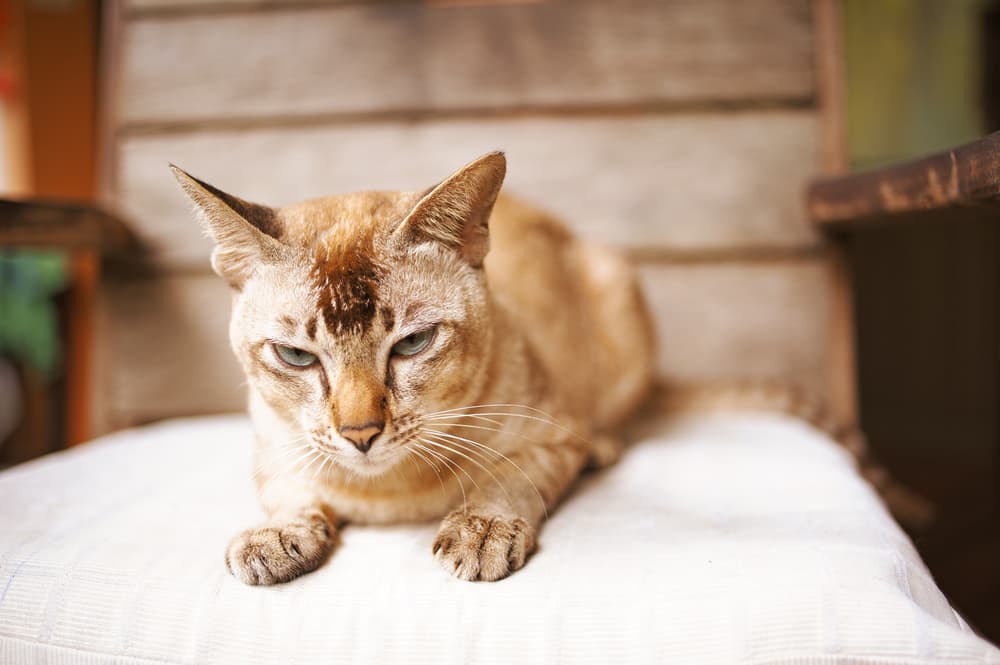
How should I transition my senior cat to a new litter box?
Cats, especially older ones, can be picky about changes in their lives, so a smooth transition to a new litter box is key. Be sure to place the senior cat litter box in the same place as the previous litter box, and add some of the old litter so your cat recognizes that it has the same purpose. After your cat uses the litter box, make it seem like an attractive option by keeping it clean. “If needed, you can use litter attractants to help them know where the box is and entice them to go in that area,” notes Steffen.
What should I do if my senior cat still refuses to use a new litter box?
If your pet is refusing to use their litter box, be sure that they’ve had a vet visit to rule out possible health conditions. Steffen shares a few additional tips to make the litter box easier for your pet to use:
- Place the box on a flat, stable surface that is easily accessible.
- If you have multiple floors, keep a box on each floor
- Clean boxes daily so that they have more free surface area.
- Place a secure yoga mat or similar cushioned kitchen floor mat under and in front of the box to allow a durable, soft surface. Slick surfaces like hardwood can be more difficult for cats as they age.
It may also be helpful to try pee pads in the area your pet has been using the bathroom.
Why is my senior cat laying in the litter box?
Senior cats lay in the litter box for various reasons. In many cases, it can be because they are seeking out a safe space in a stressful situation, and the litter box feels like a secure, enclosed area for them. It can also be a health issue — if they feel the need to urinate often, they may be sticking close to the bathroom. After checking for any health issues, try providing your pet with an alternative place to retreat to and sleep that’s enclosed and cozy.

